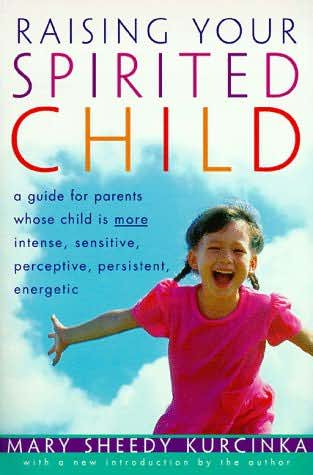A friend came to me today with concerns about her nephew. Well, she’s not concerned, but her sister-in-law is. The child just turned three and is, apparently, a bit of a handful. She was asked not to bring him back to the church nursery unless she was going to stay with him. Ouch.
Sis-in-law is now concerned about her child. She’s wondering if he might be autistic.
Now, I obviously have the barest bone sketch of this child, and I am in no way going to attempt to offer a diagnosis. But I did want to offer some general advice to anyone wondering, “Is there something wrong with my kid?”
People who know me know that I hate the idea of labelling a kid. Especially a young kid. Especially an “all boy boy” that may just be nothing more than what I like to call “boy squared.”
[pe2-image src=”http://lh4.ggpht.com/-y-IQyQi17AA/VFLGDNDJaVI/AAAAAAAAFVU/UHj1dDMK0-s/s144-o/IMAG1555.jpg” href=”https://picasaweb.google.com/107257479592166177418/20141121?authkey=o7_ybFtLmik#6076136605620988242″ caption=”” type=”image” alt=”IMAG1555.jpg” ]
But sometimes having a label helps you find the resources you need to live in peace with your child. When a parent is struggling with a child, I like to encourage the parent to read a bit about a number of different labels and see if any of them seem to fit the child or if any of the literature for a particular diagnosis offers strategies that are helpful with the child.
If you do eventually decide to pursue a diagnosis or professional help, this sort of preliminary research can be really in articulating your concerns to professionals and in guiding you to the right professionals and interventions.
I’m going to recommend some of my favorite books for help with parenting the child that makes you ask “what in the world is wrong with my child?” The books are written for kids with a variety of labels, and if you have a kid that makes you scratch your head or throw your hands up in despair, you might find that one or more of them describes your child and helps you better understand his behavior.
Your n-Year-Old. These books (Your One-Year-Old, Your Two-Year-Old, etc.) are classics in child development. They are small, quick reads, and they will almost certainly leave you feeling that someone has been peeping in your windows and watching your child. These books are a great place to start because you may just find that your child’s behavior is completely within the realm of normal. These are not parenting books or how to books, they simply describe typical child behavior. Parents almost always find them very reassuring reads.
Raising Your Spirited Child. The “spirited trait” will often apply to any child causing a parent frustration. I love this book because it helps normalize the spirited behavior, helps explain the motivation for it, and helps a parent start to value their child’s temperament rather than fight against it. It’s a great place to start for a parent who is struggling. I offer a full review of this book here.
The Explosive Child. I love this book. I hate the title, but I love the book. This is a really solid, really readable introduction to understanding difficult behavior in children. If your kids seems impervious to time-outs, ‘natural consequences,’ and all of the other traditional advice offered up by parenting books, read this book. It will give you a whole new way of approaching your child’s challenging behavior. The strategies respects and empowers both child and adult. This is a great read.
The Out of Sync Child Has Fun. This is the companion book to The Out of Sync Child, the original, definitive “text book” on sensory processing disorder. I like “…. Has Fun” because it is a very practical guide with lots of suggestions for things to do with your child. The first chapter defines and explains sensory processing disorder, and the rest of the book has super fun, super do-able activities that let you provide occupational therapy for your child at home. As with the “spirited” label, a lot of kids with “issues” will have “sensory issues.” This book will help you figure out if your child does, and if so, what you can start to do about it.
Living with Intensity. This is a great introduction to gifted children. I find that many parents don’t understand that their uber intense, seemingly scattered, and even destructive children are actually gifted kids who don’t present in the typical “reading-at-age-3” way. It’s worth considering that this is what’s going on with your child.
Misdiagnosis and Dual Diagnoses of Gifted Children and Adults: ADHD, Bipolar, Ocd, Asperger’s, Depression, and Other Disorders. Gifted kids are often misdiagnosed as having one of these ‘popular’ diagnoses. It’s also not uncommon for a gifted child to also have one of these disorders. (Google ‘twice exceptional’ for tons of information on this.) This book gives a good description of each of these disorders, explains why children are often diagnosed with one of these disorders rather than identified as gifted, and helps a parent start to tease out if their kid might gifted, have the disorder, or both. This is a good overview of these common childhood issues. It doesn’t claim that every child with this disorder is gifted, or that these disorders don’t actually exist. It just helps a parent start to sort out what might be going on with their kid.
Okay. That’s enough. If you can even skim these books, you’ll have a much better understanding of what might be ‘wrong’ with your kid. You’ll have some new tools in your belt, and you’ll have a better idea of what you might want to Google the next time you ask, ‘what in the world is wrong with my kid?!?!’







